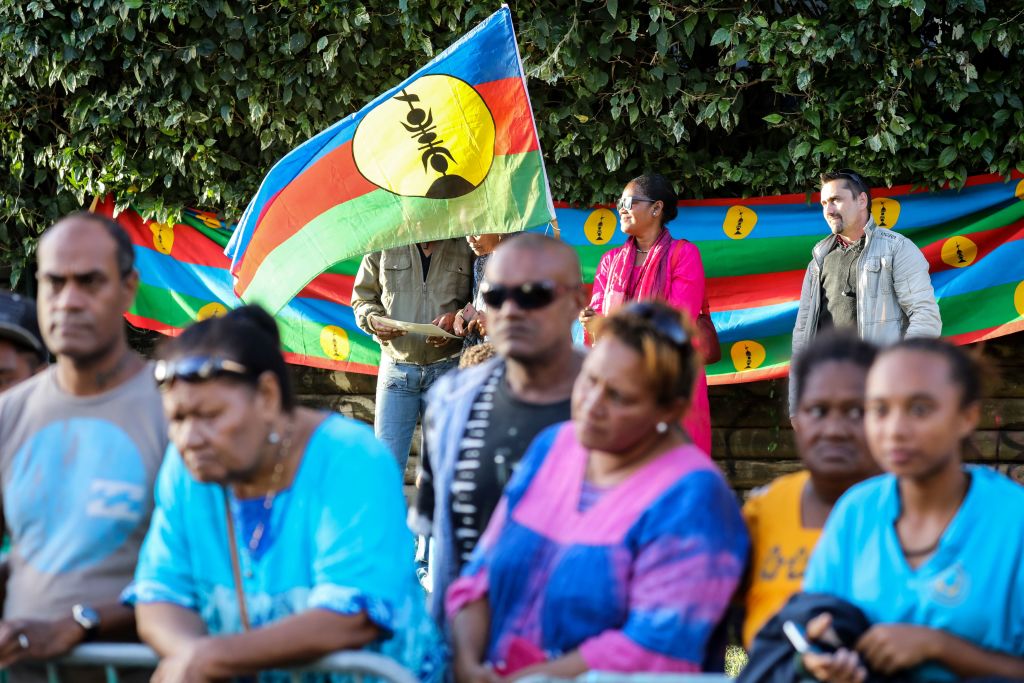New Caledonia heads to second independence referendum
Posted By Denise Fisher on August 21, 2020 @ 13:00

Two months out from New Caledonia’s second referendum on independence from France, positioning continues by both independence and loyalist groups, deepening polarisation, while President Emmanuel Macron has replaced the two ministers who have been working on the sensitive self-determination issues.
The forthcoming poll is the second of a possible three votes on independence under the final stages of the 1998 Noumea Accord, one of a number of agreements ending the civil war over independence demands in the 1980s. The second vote has been rescheduled for 4 October, a month later than originally planned, due to the Covid-19 pandemic.
In the first referendum in November 2018, 57% voted in favour of staying with France and the remaining 43%, largely an ethnic indigenous Kanak vote, supported independence. If all three polls reject independence, parties must discuss the future for New Caledonia. Such discussions must focus on its international status; the fate of core sovereign powers such as foreign affairs and defence, which are currently with France; and special voting and employment rights temporarily given to longstanding New Caledonians over newcomers under the accord. So, regardless of the outcome of the referendums, New Caledonians will be shaping a new future.
The French government has a delicate balancing act to play in organising the votes in an impartial manner. Before he was replaced by Jean Castex, Prime Minister Édouard Philippe succumbed to pressure from independence forces [1] to move the vote from 6 September to 4 October, although he did not meet their original proposal for it to be held even later. At the same time, the French government allowed a request by loyalist parties to display the French flag in their campaigning, despite the opposition [2] of independence groups.
Parties on both sides have been repositioning in a bid to achieve more support, underlining more extreme positions at both ends of the political spectrum. Six hardline loyalist parties have united under the unsurprising title ‘Les Loyalistes’, but failed to include the more moderate Calédonie Ensemble, which until 2019 was the largest single loyalist party.
On the independence side, a new Mouvement Nationaliste pour la Souveraineté de Kanaky was formed, combining the hardline Parti Travailliste with a relatively new Mouvement Nationaliste Indépendantiste et Souverainiste, with the aim of providing potential ‘yes’ supporters with an alternative to the longstanding broad independence coalition, the FLNKS (Front de Libération Nationale Kanak et Socialiste). For its part, the FLNKS has released an updated plan [3] in which it proposes a three-year transition to a future state called Kanaky-Nouvelle-Calédonie, or Kanaky-New Caledonia.
New uncertainty has arisen from the replacement in July of the two key ministers in Macron’s government in Paris who had been handling this sensitive process in New Caledonia. Philippe’s resignation as prime minister (to be mayor of Le Havre) and his replacement by Castex, a former provincial mayor, is a big change. Philippe had taken on a personal role in securing support from the various local parties in New Caledonia for the final process to begin, including lengthy discussions to decide even on the question to be put to vote, and was therefore very familiar with the issues involved. France’s new minister for its overseas territories, Sébastien Lecornu, has no experience in the country’s overseas territories, and is the first such minister not to come from one of the territories since 2009.
Recent history tells us [4] that real difficulties can occur in New Caledonia when ministers in Paris have little or no familiarity with the complex self-determination issues involved there. Responding to a question in the New Caledonian press, Lecornu said [5] that while he was not from an overseas territory, the Republic of France ‘was one’. This was an oblique message in favour of staying with France and a boost for the loyalists given the imminence of the second independence vote.
While it’s true that the French Republic is unitary, it has devised numerous ways in recent years to respect the developing autonomy in its Pacific territories through a unique flexibility and innovativeness that’s evident in the Noumea Accord itself. These qualities will be essential to redefine the nature of governance in New Caledonia as the self-determination process plays out, and even more so as France must oversee the referendums in an impartial way [6] (and be seen to be doing so) if it’s to retain the support and acceptance it has achieved in the region to date.
Article printed from The Strategist: https://www.aspistrategist.org.au
URL to article: https://www.aspistrategist.org.au/new-caledonia-heads-to-second-independence-referendum/
URLs in this post:
[1] pressure from independence forces: https://www.lowyinstitute.org/the-interpreter/new-caledonia-coronavirus-deepens-divide
[2] opposition: http://outremers360.com/politique/referendum-en-nouvelle-caledonie-la-date-et-lutilisation-du-drapeau-font-debat-entre-independantistes-et-non-independantistes/
[3] plan: https://www.lefigaro.fr/flash-actu/nouvelle-caledonie-le-flnks-veut-une-transition-de-3-ans-en-cas-d-independance-20200804
[4] history tells us: https://press-files.anu.edu.au/downloads/press/p241101/pdf/book.pdf
[5] Lecornu said: https://www.lnc.nc/article/nouvelle-caledonie/politique/passage-de-temoin-entre-sebastien-lecornu-et-annick-girardin
[6] in an impartial way: https://www.lowyinstitute.org/sites/default/files/Fisher_New%20Caledonia%27s%20independence%20referendum_2.pdf
Click here to print.